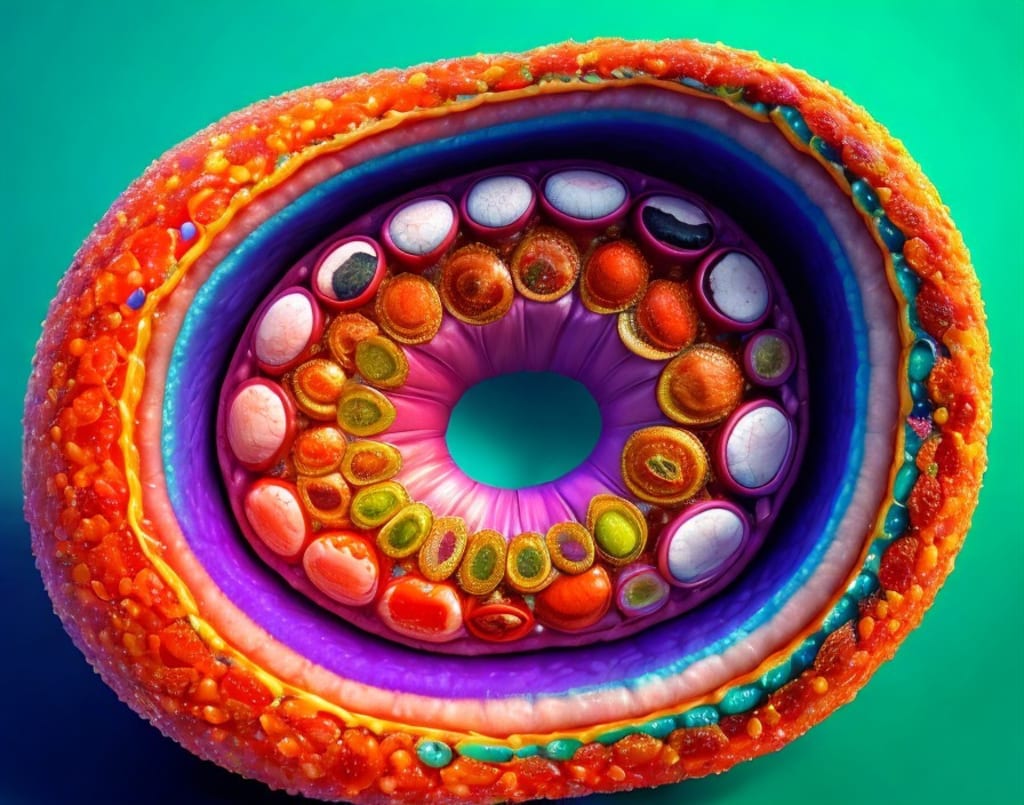The Mighty Mitochondria: Powering Your Body From Within
Unlocking the Secrets of Cellular Energy Production

The Mighty Mitochondria: Powering Your Body From Within
Remember learning about the "powerhouse of the cell" in biology class? That title belongs to the mitochondria, tiny organelles that play a crucial role in keeping our bodies functioning at their best. But what exactly do mitochondria do, and how do they affect our health and well-being? Buckle up, because we're about to delve into the fascinating world of cellular energy production!
Fueling Every Action: The Role of ATP
Mitochondria earn their "powerhouse" title because they're responsible for generating ATP (adenosine triphosphate), the primary fuel our bodies use for almost every function. From the powerful contractions of your muscles during a workout to the intricate communication between neurons in your brain, ATP is the energy currency powering these processes.
Breaking Down Food for Energy: A Complex Dance
The fuel source for mitochondria comes from the food we eat. Fats and sugar molecules are broken down into smaller components, releasing energy that gets harnessed through a series of complex chemical reactions within the mitochondria. This process, called cellular respiration, resembles the combustion reactions that power cars and airplanes, but with a crucial difference – mitochondria are far more efficient at extracting energy from food.
A Unique Inheritance: Mitochondrial DNA
Interestingly, mitochondria have their own DNA, separate from the nuclear DNA we inherit from both parents. This mitochondrial DNA is circular, like bacterial DNA, hinting at an intriguing evolutionary story. Scientists believe that mitochondria were once free-living bacteria that became engulfed by larger cells, forming a symbiotic relationship over a billion years ago. The host cell gained an energy-producing partner, and the bacteria found a safe haven within the cell.
When Power Fails: The Impact of Mitochondrial Dysfunction
Given their critical role in energy production, it's no surprise that damage to mitochondria can have a significant impact on our health. Mutations can occur in mitochondrial DNA, altering the instructions for building proteins needed for proper function. These mutations can be inherited from the mother (as mitochondrial DNA comes solely from the maternal side) or arise due to aging and environmental factors. Damaged mitochondria can contribute to the aging process and are implicated in the development of various health conditions like type 2 diabetes and cancer.
Taking Charge of Your Powerhouse: Strategies for Optimal Mitochondrial Health
The good news is that we have some control over our mitochondrial health. Regular exercise promotes the creation of more and better-functioning mitochondria, keeping your cellular powerhouses running smoothly. Additionally, proper nutrition is essential. Opt for a balanced diet rich in fruits, vegetables, and whole grains, which provide the necessary nutrients for optimal mitochondrial function.
On the Cutting Edge: Modern Research and Trends in Mitochondrial Health
The field of mitochondrial medicine is rapidly evolving, offering exciting possibilities for improving our health and well-being. Here are some key areas of research:
- Mitochondrial Medicine and Disease Management: Mitochondrial dysfunction is implicated in a wide range of diseases, including neurodegenerative disorders like Parkinson's and Alzheimer's. Researchers are exploring targeted therapies to improve mitochondrial function and potentially slow disease progression. A 2023 study published in Nature Medicine showed promise in using a gene therapy approach to deliver healthy copies of mitochondrial DNA to treat a specific type of mitochondrial disease.
- The Gut-Mitochondria Connection: A fascinating area of research focuses on the link between the gut microbiome and mitochondrial health. The trillions of bacteria residing in our gut play a crucial role in digestion and overall health. Emerging evidence suggests that a healthy gut microbiome can positively influence mitochondrial function by regulating nutrient absorption and reducing inflammation. Studies like a 2022 research article in Cell Metabolism highlight the potential for manipulating gut bacteria to improve mitochondrial health and potentially treat metabolic disorders.
Beyond Diet and Exercise: Additional Strategies for Mitochondrial Support
While exercise and a balanced diet are crucial for mitochondrial health, other lifestyle factors can also play a role:
- Sleep and Circadian Rhythm: Our bodies operate on a natural internal clock known as the circadian rhythm. Disruptions to this rhythm, caused by irregular sleep patterns or jet lag, can negatively impact mitochondrial function. Aim for a consistent sleep schedule and prioritize good sleep hygiene to support healthy mitochondrial activity.
- Stress Management Techniques: Chronic stress can have a detrimental effect on our mitochondria. Techniques like meditation, yoga, or deep breathing can help manage stress and promote mitochondrial health. A 2021 review published in Frontiers in Cell and Developmental Biology explores the various mechanisms by which chronic stress can damage mitochondria and emphasizes the importance of stress management for overall well-being.
Examples of Mitochondrial Diseases and the Importance of Early Diagnosis
Mitochondrial diseases are a group of conditions caused by dysfunction of the mitochondria. These can be debilitating and affect various organ systems. Some examples include:
- Leber's hereditary optic neuropathy (LHON): This genetic disorder affects the optic nerve, leading to progressive vision loss. Early diagnosis through genetic testing is crucial for managing symptoms and potentially slowing disease progression.
- Myoclonic epilepsy with ragged-red fibers (MERRF): This condition causes muscle weakness, seizures, and neurological problems. Early diagnosis and treatment with medications and dietary modifications can help manage symptoms and improve quality of life.
Conclusion: The Power Within
Mitochondria are more than just cellular powerhouses; they're the silent workhorses that keep our bodies functioning at their best. Understanding their role in energy production and their potential impact on health empowers us to make informed choices about our lifestyle and diet. By prioritizing exercise, a balanced diet, and healthy lifestyle habits like stress management and good sleep hygiene, we can support our mitochondria, ensuring they continue to operate as efficient energy factories, keeping us fueled for an active and healthy life.
The field of mitochondrial medicine is rapidly evolving, offering exciting possibilities for future treatments. As research continues to unveil the intricate connection between mitochondria and various health conditions, we can expect even more advancements in managing and potentially preventing diseases related to mitochondrial dysfunction. By taking charge of our mitochondrial health today, we can pave the way for a more vibrant and healthy future.
About the Creator
suren arju
Hi there! I'm Suren, your startup guide. Entrepreneur, writer, dreamer - I share insights, tips & stories to fuel your startup journey. Ready to explore, learn & win together? Join me & let's redefine how we launch, learn & leap!
Enjoyed the story? Support the Creator.
Subscribe for free to receive all their stories in your feed. You could also pledge your support or give them a one-off tip, letting them know you appreciate their work.





Comments
There are no comments for this story
Be the first to respond and start the conversation.